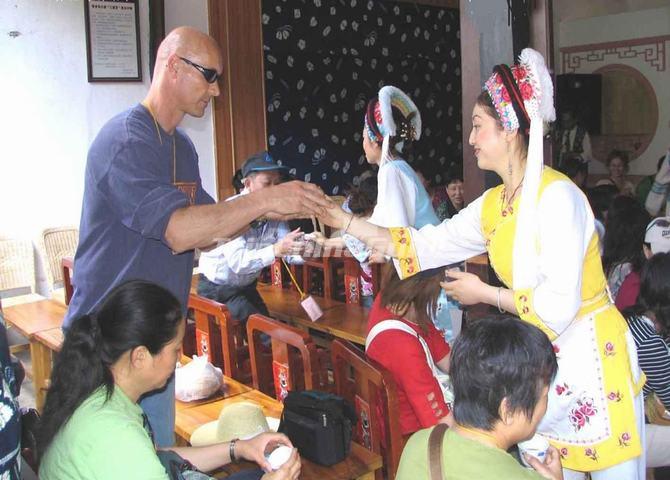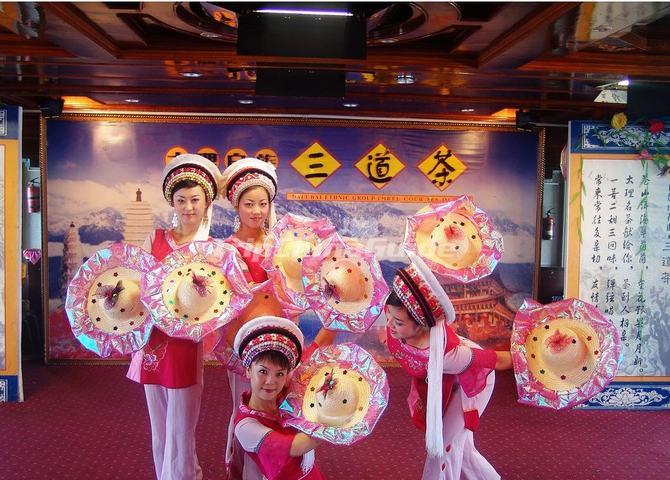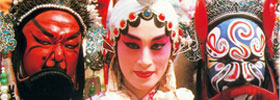Bai Three Course Tea
The Bai tea ceremony, Three Course Tea, is most popular among the Bai in the Dali area and is a common sight at festivals and marriages. It is both a cultural ceremony and method of honoring guests. The ceremony is often described in Mandarin as, 'Yiku, ertian, sanhuiwei' (First is bitter, second is sweet, and third brings aftertastes).

The first course is pure baked tea which tastes bitter .It starts with baking the tea leaves in a clay pot over a small flame,shaking the leaves often whilst they bake. When the leaves turn slightly brown and give off a distinct fragrance heated water is added to the pot. The water should immediately begin bubbling, when the bubbling ceases a small amount of bitterly fragrant, concentrated tea remains. Due to the sound the hot water makes when it enters the clay pot the first course tea was, in previous times, also known as Lei Xiang Cha (Sound of Thunder Tea).

The second is added with sliced walnuts, baked milk-curd and brown sugar which taste sweet. Pieces of walnut kernel and roasted ru shan (a dairy product specific to the Dali region) are put into a tea cup with brown sugar and other ingredients. Boiling water is added and the tea is then offered to the guest. This tea is sweet without being oily, so the guest can easily drink it.
The third has honey and several Chinese peppers added which gives meaningful afterthoughts. It is made by mixing honey, Sichuan pepper, slices of ginger and cassia together in a china cup with hot Cangshan Snow green tea. The product is a tea, which is sweet, coarse and spicy all at once. This Dali specialty has a noticeable aftertaste, which meant it was known as Hui Wei Cha (Reflection Tea).

Bai people like drinking baked tea and are particular about their tea set. The best cups for the guests are snow-white and delicate. The well-known Three-Course Tea, which is a graceful Bai etiquette for the distinguished guests, has professional performance in the hall of Family Yan’s Courtyard in Xizhou Old Town. The 18 procedures of the tea ceremony are governed by strict etiquette, which follows the principles of etiquette, honesty and beauty. As such, the tea ceremony is considered by some to perfectly embody the hospitable Bai people's current customs.












